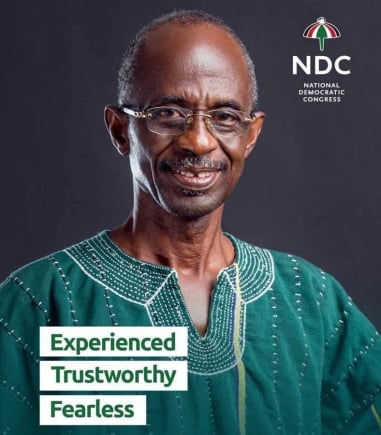The announcement of a “thank-you tour” by National Democratic Congress (NDC) Chairman Johnson Asiedu Nketia has sparked a wave of internal debate, with some party members questioning the true motives behind the initiative. While officially presented as a gesture of appreciation towards the party machinery that secured victory in the hypothetical 2024 elections, the scale and timing of the tour have fueled speculation that Asiedu Nketia may be harboring presidential ambitions. The three-day tour, slated for September 17-19, 2025, will cover 16 constituencies in the Eastern Region, a significant undertaking that goes beyond the typical post-election gratitude exercise. This ambitious scope has raised eyebrows and prompted whispers within the party, with some suggesting that the chairman is leveraging the opportunity to build a stronger grassroots base and position himself for a future leadership bid. The official narrative, however, emphasizes unity and gratitude, with party spokespeople insisting the tour adheres to established traditions and aims to solidify party cohesion ahead of upcoming political challenges.
The controversy surrounding Asiedu Nketia’s tour highlights the delicate balance between expressions of gratitude and the pursuit of personal political ambitions. While thanking party workers for their contributions is a common practice, the scale of this particular tour, coupled with its timing just a year after the hypothetical 2024 elections, lends credence to the alternative interpretation. Critics within the party argue that a more modest and localized approach would have sufficed to convey appreciation, and that the extensive nature of the tour suggests a broader strategic objective. Furthermore, the choice of the Eastern Region, a politically significant area, adds weight to the speculation. This region, often considered a swing region, could play a crucial role in any future presidential election, and Asiedu Nketia’s focus on it may indicate a calculated move to cultivate support in a key electoral battleground.
Adding fuel to the fire is Asiedu Nketia’s prominent role and influence within the NDC. As the national chairman, he commands considerable authority and enjoys widespread recognition within the party ranks. This pre-existing prominence makes it difficult to entirely disentangle his personal ambitions from any official party activity, particularly one as extensive as the proposed tour. His long and storied career within the NDC, marked by both successes and controversies, further contributes to the intrigue surrounding his motives. Known for his political acumen and sometimes controversial statements, Asiedu Nketia is a figure who invariably attracts attention and generates discussion within the political landscape.
The official response from the NDC leadership has been to downplay any speculation about Asiedu Nketia’s presidential ambitions. Party spokespeople have reiterated that the tour is solely an expression of gratitude and an effort to strengthen party unity. They emphasize the importance of recognizing the hard work of party members at all levels, from local organizers to senior executives, and stress the need to maintain a cohesive and motivated party structure. This narrative seeks to portray the tour as a routine exercise in party building, devoid of any hidden agenda. However, the persistence of the alternative narrative, bolstered by the scale and timing of the tour, suggests that these official pronouncements have not fully assuaged the concerns and suspicions within the party.
The unfolding debate over Asiedu Nketia’s thank-you tour reveals the complex dynamics within the NDC and the undercurrents of ambition that often shape political maneuvering. The party, having hypothetically emerged victorious in the 2024 elections, now faces the challenge of navigating the post-victory landscape, managing internal rivalries, and preparing for future electoral contests. The speculation surrounding the chairman’s tour provides a glimpse into the jostling for position and influence that often characterizes the aftermath of an election, as individuals and factions within the party seek to solidify their standing and advance their agendas.
Ultimately, the true motives behind Asiedu Nketia’s thank-you tour remain a subject of conjecture. Whether it is a genuine expression of gratitude, a strategic move to bolster his political standing, or a combination of both, it has undoubtedly stirred the political pot within the NDC. The ensuing debate highlights the challenges of balancing personal aspirations with the collective interests of the party, and underscores the ever-present tension between unity and ambition in the realm of politics. As the NDC moves forward, the fallout from this controversy will likely continue to shape the internal dynamics of the party and influence the trajectory of its leadership in the years to come.














